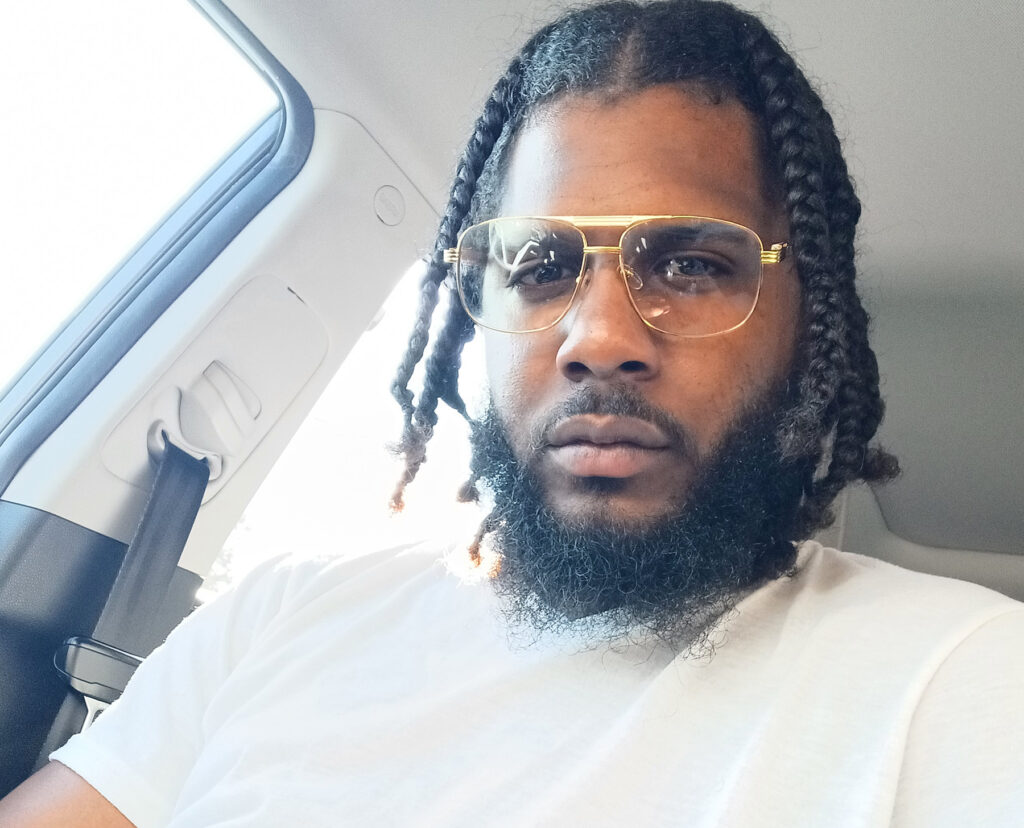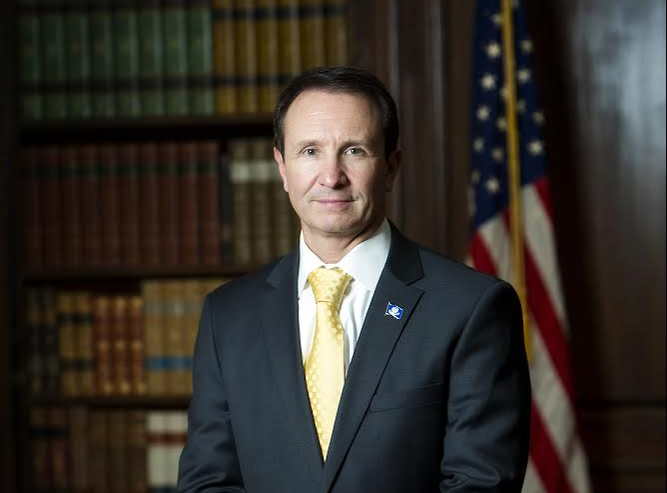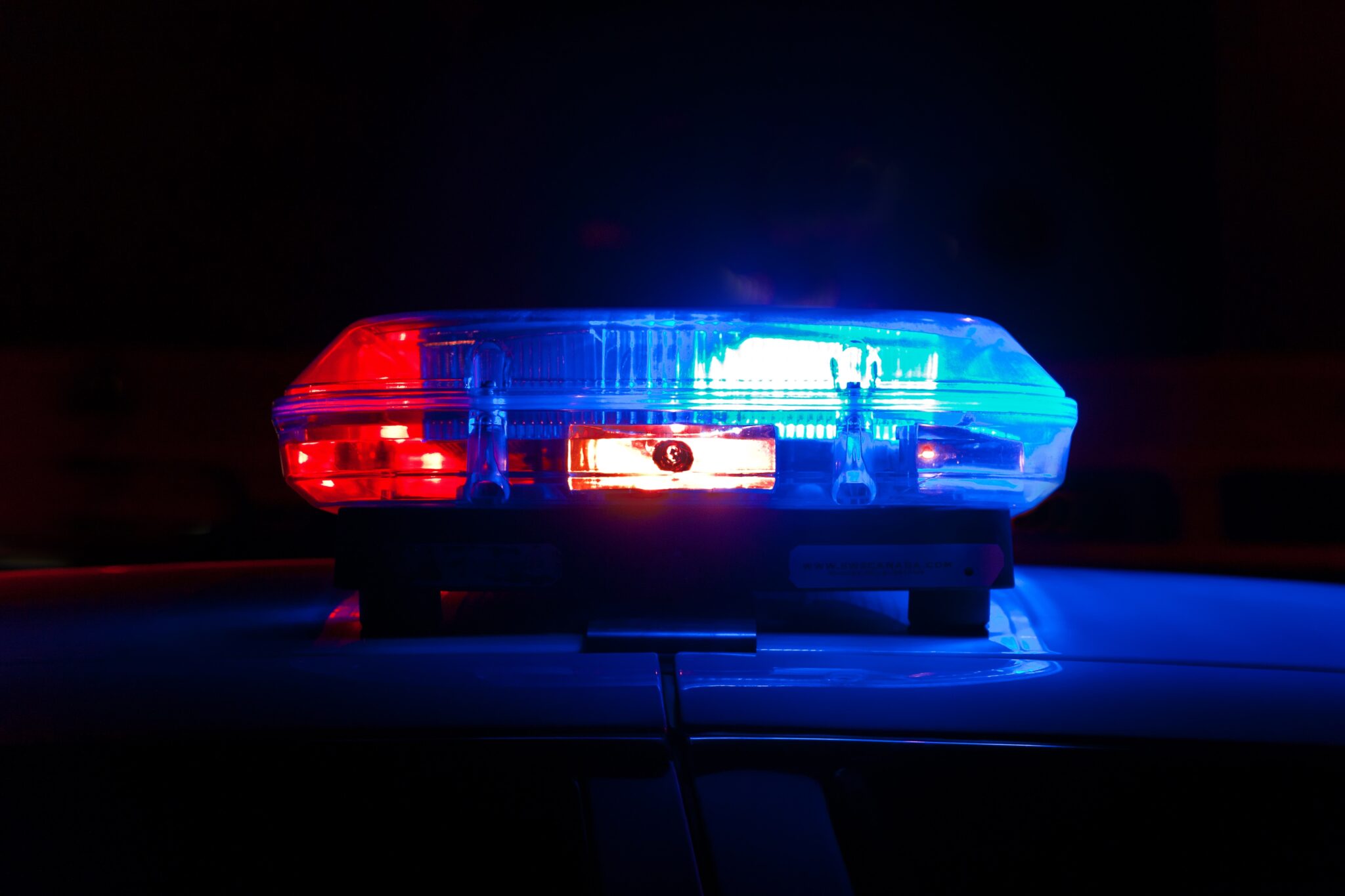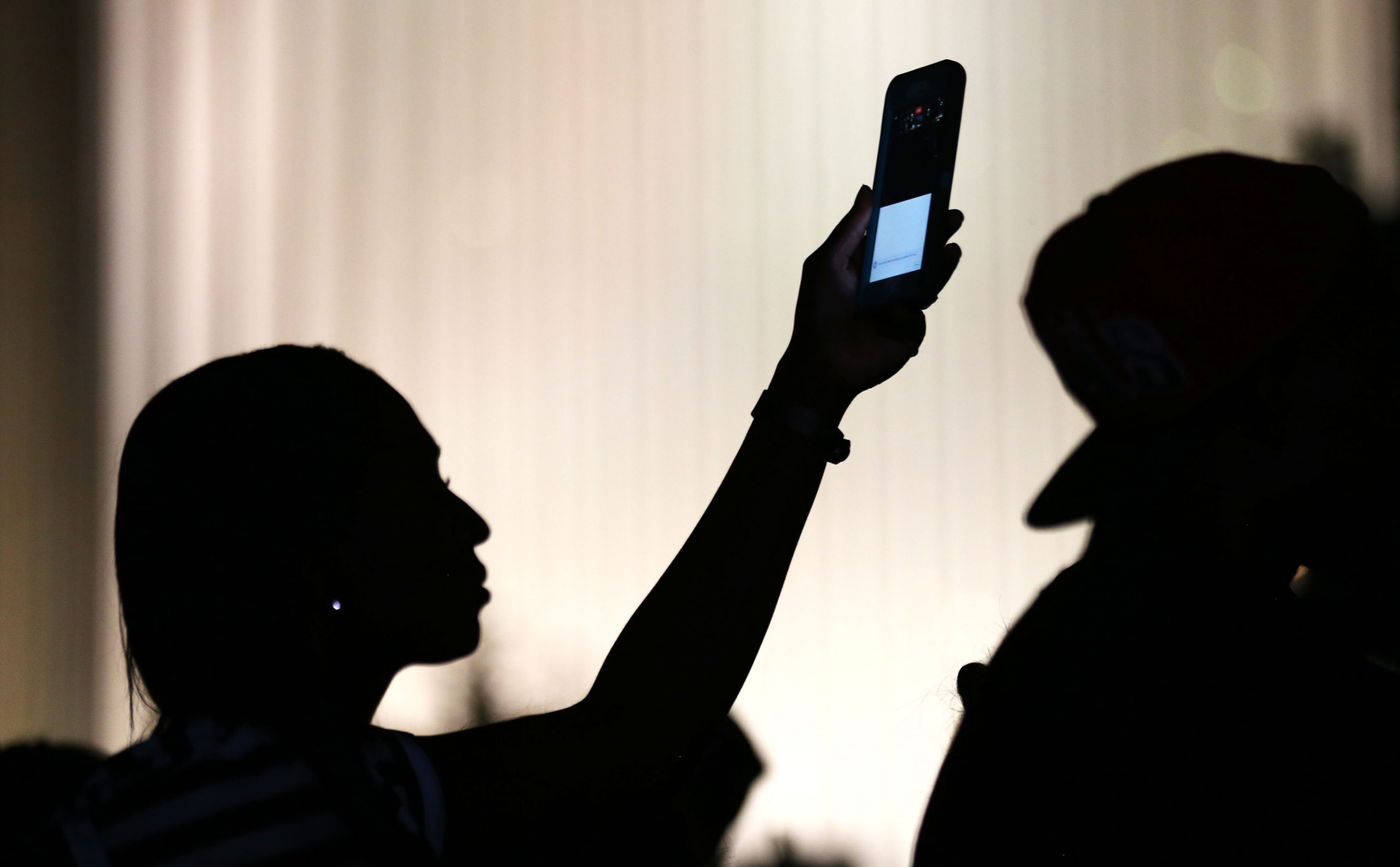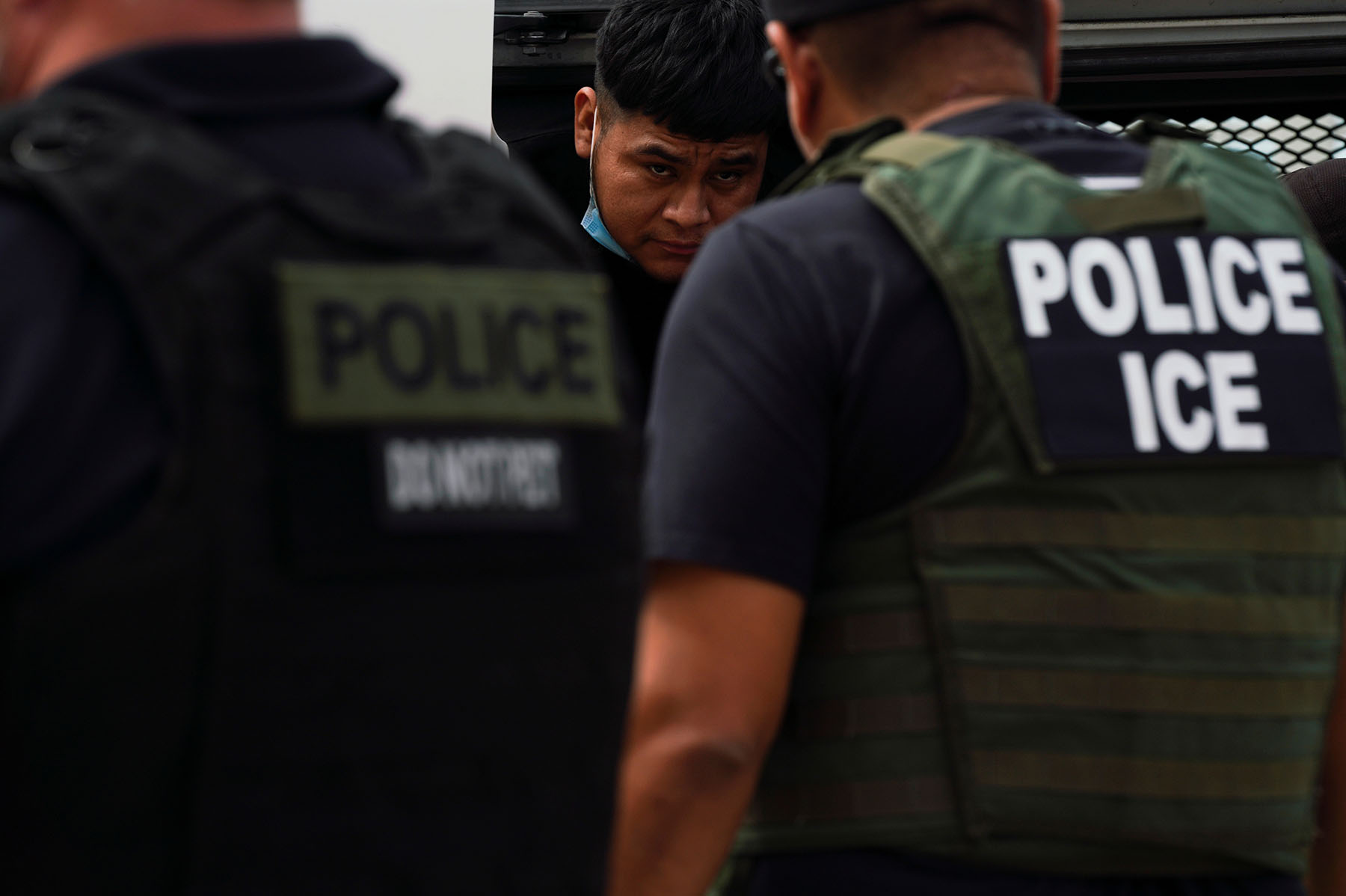A North Carolina man sued a police department and two officers for violating his First Amendment right to record and livestream as a passenger during a traffic stop. The U.S. Court of Appeals for the Fourth Circuit ruled Feb. 7 that livestreaming the police is protected speech.
Dijon Sharpe sued North Carolina’s Winterville Police Department and two of its officers in 2019 after he was barred from broadcasting his traffic stop on Facebook Live because they argued it potentially threatened the officers’ safety. Based on statements made by police during the stop, Sharpe alleged the police department “has an unconstitutional policy, custom or practice of preventing citizens from recording and livestreaming their interactions with police officers in the public performance of their duties,” the suit stated.
According to court records and Sharpe’s Facebook Live video recorded during the traffic stop, Officer Myles Parker Helms asked Sharpe, “What have we got? Facebook Live, cous?” As Sharpe responded “Yeah,” Helms reached into the passenger side window in an attempt to grab Sharpe’s phone, and pulled on his shirt and his seatbelt in the process.
“We ain’t gonna do Facebook Live, because that’s an officer safety issue,” Helms said. The other officer at the driver’s window, William Ellis, said “Facebook Live … we’re not gonna have, okay, because that lets everybody ya’ll follow on Facebook that we’re out here … It lets everybody know where y’all are at. We’re not gonna have that.”
“If you were recording, that is just fine … We record, too. So in the future, if you’re on Facebook Live, your phone is gonna be taken from you … if you don’t want to give up your phone, you’ll go to jail,” Ellis continued. After the traffic stop, Sharpe kept recording. “P. Helms will be getting a lawsuit,” he said as he continued filming.
But Sharpe’s claims were dismissed in two opinions from the U.S. District Court for the Eastern District of North Carolina, which ruled the First Amendment didn’t allow Sharpe to livestream the traffic stop from within the car.
Seven federal appellate courts have ruled that the right to record police in public places is protected by the First Amendment. The Fourth Circuit had not ruled on the constitutional right to record police as of January 2023. Despite the majority of the 12 judicial circuits recognizing the right to record police, “no circuit has addressed the right of a passenger in a stopped vehicle during a traffic stop to record and real-time broadcast police in performing their public duties,” the district court stated. And, the district court wrote, “these circuits have explicitly declined to address the limits of this constitutional right.”
But the Fourth Circuit ruled that livestreaming traffic stops is protected speech.
“Recording police encounters creates information that contributes to discussion about governmental affairs,” wrote Judge Julius N. Richardson in the decision. “So too does livestreaming disseminate that information, often creating its own record. We thus hold that livestreaming a police traffic stop is speech protected by the First Amendment.”
In an interview with First Amendment Watch, Sharpe said he chose to livestream because it shows the incident in real-time. It’s to “combat any wrongful or unlawful, unjustful acts,” he said. “So that could be with anyone. It’s not just a target at law enforcement, but in this particular moment they were the subjects.”
A year earlier, Sharpe said he was “punched in the chest” and tased by police for allegedly resisting arrest during a traffic stop. He then began advocating for transparency and urging people to livestream and record their interactions with police officers to protect themselves. “I said it wouldn’t happen again, it can’t happen again,” Sharpe said.
While Sharpe promotes livestreaming and urges others to do the same, it’s not because of a “vendetta” against police. “It’s there to help both sides,” he said, noting police can also refer to livestream footage in situations where they might be targeted for wrongful acts they didn’t commit.
The two officers and the police department argued that this type of video streaming endangers police officers “because viewers can locate the officers and intervene in the encounter,” according to the filing. But the court stated that despite Winterville’s interest in protecting its officers, it could not “conclude, at this stage, that the policy survives First Amendment scrutiny.”
Any restrictions on speech itself must meet a compelling state interest and must be narrowly tailored to achieve that interest in order to meet the “strict scrutiny” standard.
Sharpe said he didn’t understand why livestreaming or recording law enforcement would be considered an officer safety issue. As a public servant, he said, “you are subject to being live recorded, recorded, approached, stopped at any given time in the U.S. and in the state and city that you work.”
“I don’t understand why that would be a safety issue or why that would be an issue, period,” he said, “unless you were doing something or had intentions on doing something that you shouldn’t have been doing, which is why I encourage people to livestream.”
Officer Helms was sued in both his official and individual capacities for his attempt to physically grab Sharpe’s phone from him during the traffic stop. The Fourth Circuit affirmed the district court’s ruling that Helms is protected by qualified immunity, which “shields government actors from being sued unless their conduct violates a clearly established constitutional or statutory right that any reasonable person would have known.”
There is “no precedent in this Circuit nor consensus of authority from the other Circuits established that Officer Helms’s actions were unconstitutional,” Judge Richardson stated.
Statements made by Ellis and Helms during the traffic stop led Sharpe to believe the police department is implementing an unconstitutional policy. Judge Richardson noted Sharpe “sufficiently alleged that the Town has a policy barring livestreaming one’s own traffic stop that violates the First Amendment. He must now show this policy exists. And, if it does, the Town will have the chance to prove that it does not violate the First Amendment.”
Of the three-judge panel, Circuit Judge Paul V. Niemeyer wrote a concurring opinion, questioning the court’s lack of acknowledgement of the Fourth Amendment, noting that the free speech claims at issue in the case arose from a lawful seizure.
“When conducting traffic stops, law enforcement officers may intrude on the liberty interests of those who have been stopped, so long as the intrusion is reasonable,” Judge Niemeyer argued.
But, the majority disagreed with an application of the Fourth Amendment in this case.
“Government action may pass scrutiny under the Fourth Amendment but still offend the First,” a footnote in the opinion stated. “The Fourth and First Amendments do not authorize government actions. They limit them. So finding that certain police intrusions on liberty comply with the Fourth Amendment does not bless those actions as permissible restraints on speech.”
Feb. 7, 2023 — U.S. Court of Appeals for the Fourth Circuit Opinion
Tags
